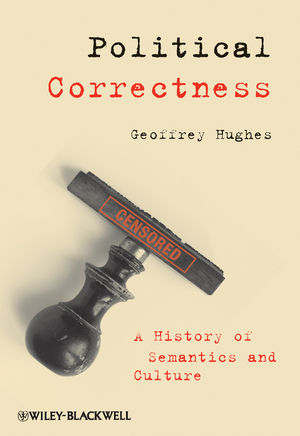Political Correctness: A History of Semantics and CultureISBN: 978-1-4051-5278-5
Hardcover
336 pages
November 2009, Wiley-Blackwell
 This is a Print-on-Demand title. It will be printed specifically to fill your order. Please allow an additional 10-15 days delivery time. The book is not returnable.
Other Available Formats: Paperback
|
||||||
Connect with Wiley Publicity
Political Correctness is a term that is often flung about in public discourse but its overuse causes us to rarely recognize its relevance, which opens it up to misinterpretation. Furthermore, few people know the real origins of the phenomenon. In POLITICAL CORRECTNESS: A History of Semantics and Culture (Wiley-Blackwell, November 2009) Geoffrey Hughes, pre-eminent scholar on the history of the English language, opens up the PC debate and chronicles its longstanding effect on social interaction, historical political agendas, and popular culture. He examines the trajectory of political correctness and its impact on public life to date, in the first truly international and in-depth treatment of the topic.
The origins and intentions of the politically correct movement (Part I: Political Correctness and its Origins) were grounded in a real respect for differences among peoples and sensitivity to suffering, and its prevention. However, it has quickly become a tool to distract people from the genuine and larger issues at hand, and has become a pat and predictable source of parody. As you might expect from the author of books such as A History of English Words and Swearing: A Social History of Foul Language, Oaths and Profanity in English, Hughes knows about language, and is unafraid of tackling sensitive debates in his quest.
Hughes asks us to move beyond the buzz word and look closely at serious issues surrounding the debate including disability, disease, addiction, difference, “lookism,” religious rituals, the environment and animal rights. He offers a detailed semantic analysis of the way that keywords have been exploited both to advance the agendas of Political Correctness, and to refute them.
Hughes’ journey leads us through sources as diverse as Chaucer, Shakespeare and Swift; Philip Larkin, David Mamet, and J.M. Coetzee; nursery rhymes, rap, and Spike Lee films (Part III: Zones of Controversy). The historical, semantic (Part II: The Semantic Aspect), and cultural aspects (Part IV: Cultural and Historical Issues) of political correctness are thoroughly revealed and discussed.



